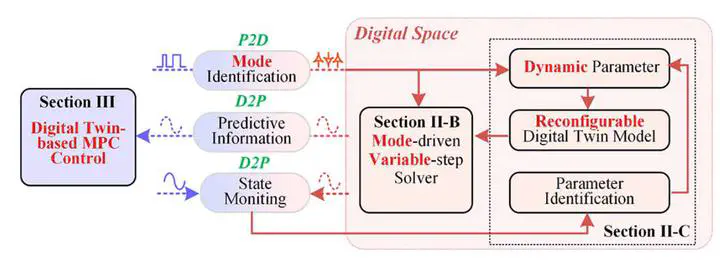Cognitive Digital Twins-Based Model Predictive Control for High-Frequency Power Converters

Abstract
Comprehensive state information enables significant improvements in the dynamic performance of high-frequency power converters. Unlike traditional sensor-based methods, digital twin technology fundamentally offers noninvasive and delay-free global state estimation, making it highly promising for advanced control. However, its implementation faces significant challenges in computational cost, parameter adaptability, and control integration. This article proposes a cognitive digital twin (CDT) framework that combines insights from the physical space with efficient numerical algorithms. Specifically, a mode-driven numerical solver is designed to improve computational efficiency, while a parameter-identification-based reconfigurable model ensures robust state tracking under parameter drift. By seamlessly integrating CDT-generated information with model predictive control (MPC), a CDT-MPC scheme is proposed to achieve high control performance without high-bandwidth sensors. Experimental validation on a 50 kHz four-port multiactive bridge converter demonstrates that CDT-MPC improves estimation accuracy by three orders of magnitude, achieves deadbeat dynamic response, and eliminates sensor sampling delays. These results highlight the CDT-MPC scheme as a fully digital and widely applicable solution for high-frequency control, advancing next-generation intelligent power converters.